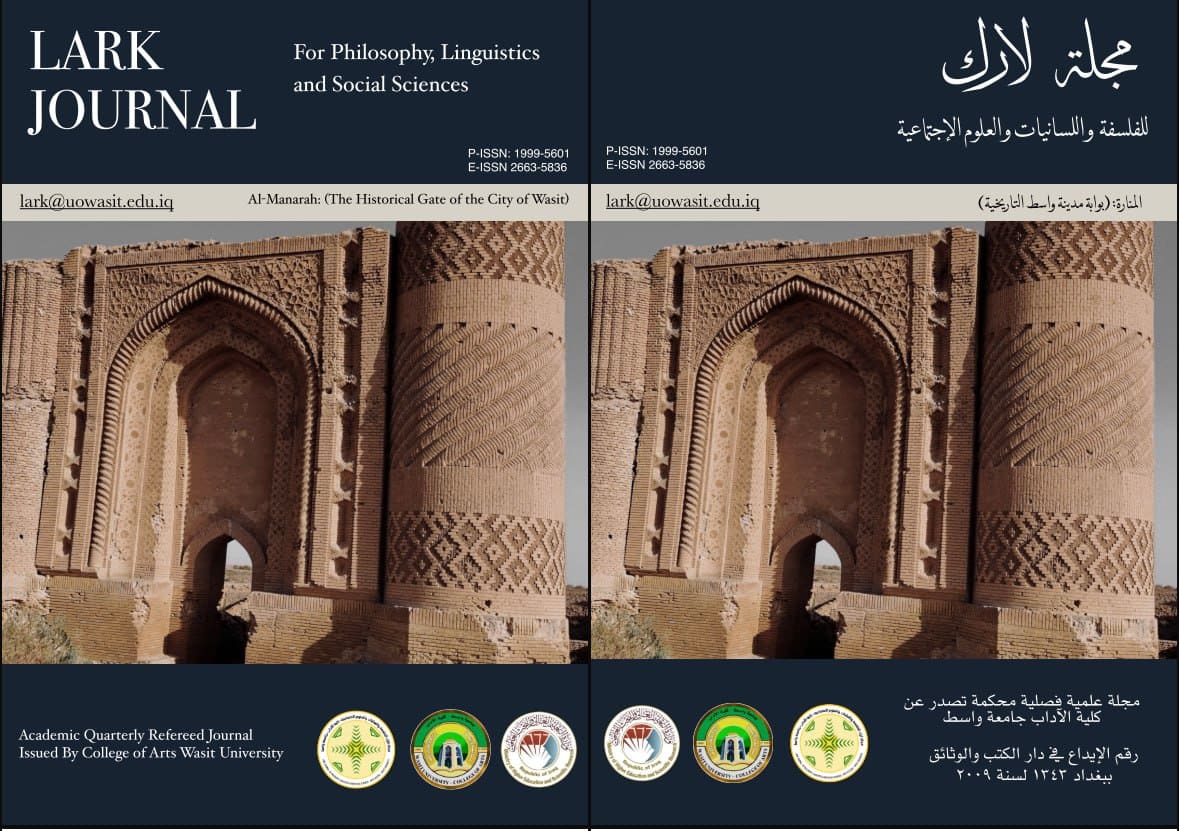Abstract
This study takes the poetry of the early Islamic period, specifically that of the poet Al-Nabigha al-Ja‘di (d. 65 AH), as a model for examining the cognitive dimension of the sacred in his poetry. It analyzes his creative output using a semiotic approach that focuses on signifier and signified, abstract mental concepts, and sensory images, and their role in shaping meaning. The study aims to identify the value of cognition as a representational and cultural element with connotations of the poet’s unique creativity, especially in his representation and perception of the sacred. This was during a time when poetry was one of the key tools for defending the true religion, calling people to faith, combating non-believers, and documenting Islamic battles. The sacred thus assumes a cognitively and emotionally perceived presence in the work of Al-Ja‘di, whose poetry reveals the values of Islam through his perception of the significance of religion, the manifestations of the sacred, his sense of its greatness, and the human weakness before the power of God.
Keywords
Al-Nabigha Al-Jaadi.
Cognition
Dimension
sacred
Abstract
تتخذ هذه الدّراسة من قصيدة صدر الإسلام أنموذجًا بحثيًّا مع الشّاعر النابغة الجعدي (ت65هـ)، للكشف عن البعد الإدراكي للمقدّس في شعره، عن طريق تحليل نتاجه الإبداعيّ، ومقاربته مقاربة سيميائيّة، تركّز على الدّوال والمدلولات، والمفاهيم العقليّة بمستواها المعنويّ المجرّد، والصّور المدركة حسيًّا، وأثرها في تشكيل المعنى، لِتحَقُقِ من قيمة الإدراك كعنصر تمثيلي وثقافيّ له أبعاده الدّالة على الإبداع الّذي ينفرد به الشّاعر، ولاسيما في تمثيله للمقدّس، وإحساسه به، في عصرٍ كانت فيه القصيدة واحدة من علامات الدّفاع عن دين الحقّ، ودعوة القوم إلى الإيمان، ومحاربة المشركين، وتوثيق المعارك الإسلاميّة، ليكون للمقدّس حضوره المدرك عقلًا وعاطفةً مع \"الجعديّ\" الّذي كشف شعره عن قيم الإسلام من خلال إدراكه لقيمة \"الدّين\" عن طريق تجليّات المقدّس، والإحساس بعظمته، وبضعف الإنسان أمام قدرة الله .
Keywords
البعد ، الإدراك ، المقدّس ، النّابغة الجعدي.
